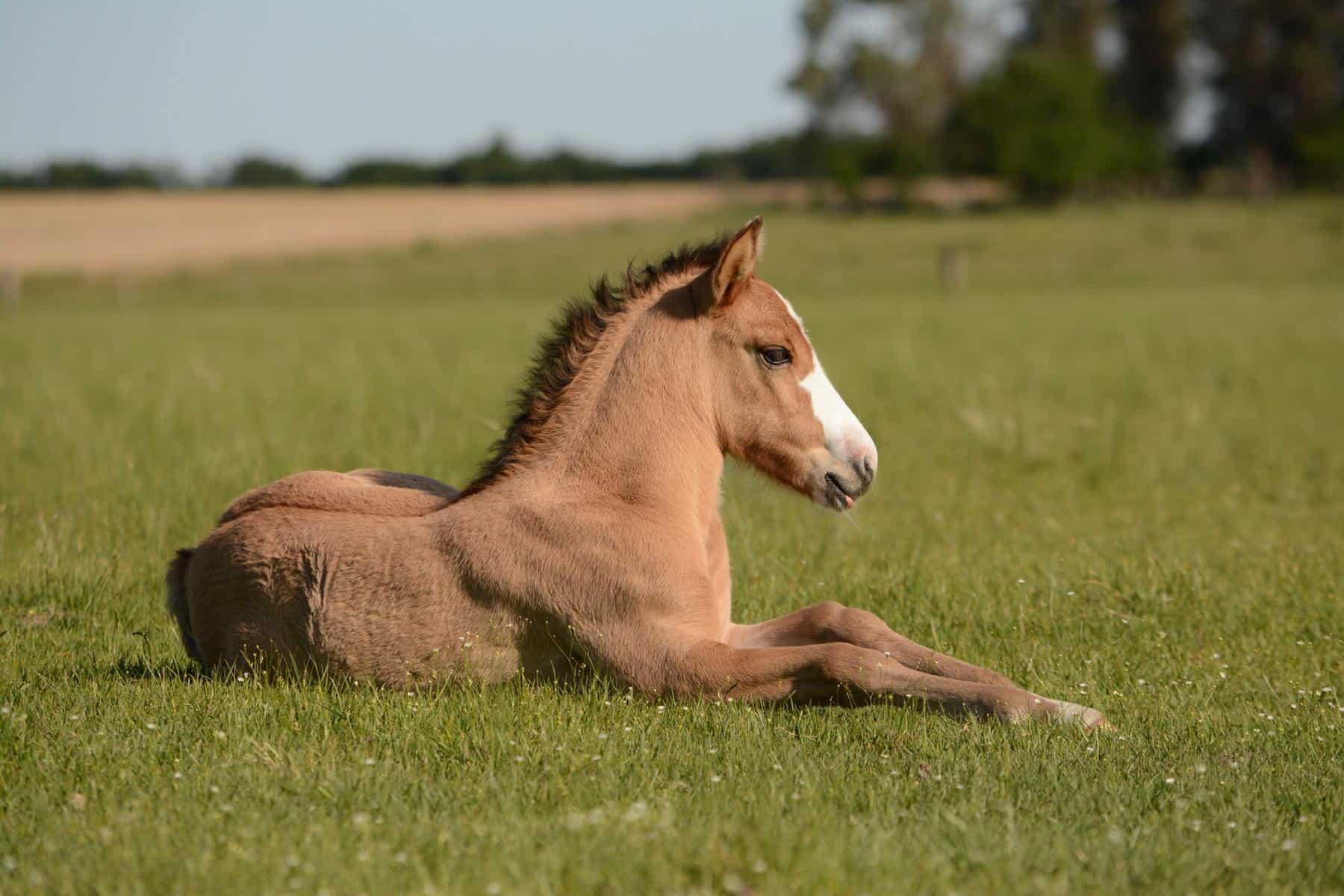
Are you a fan of these adorable and charismatic creatures? Well, get ready to fall head over hooves for baby horses! These pint-sized equines are not only incredibly cute but also fascinating in their own right. From their playful antics to their whopping growth rate, there’s so much to learn about these little bundles of joy.
In this article, we’ll uncover 10 intriguing facts about baby horses that will leave you amazed. Whether you’re a horse enthusiast or simply curious about the animal kingdom, you’re in for a treat. So, saddle up and let’s dive into the delightful world of baby horses!
Key Takeaways:
- Baby horses, called foals, are born curious and energetic, able to stand and walk shortly after birth, and grow rapidly in their first year, showcasing their remarkable journey from birth to independence.
- Foals form strong bonds with their mothers, love to play and socialize with other young horses, and undergo teething, showcasing their unique and adorable characteristics as they navigate their early stages of life.
Baby horses are called foals.
When a horse gives birth, the offspring is called a foal. These adorable creatures are incredibly curious and full of energy. They have long legs, a fluffy coat, and a playful nature.
Foals can stand and walk shortly after birth.
Unlike many other animals, foals are born with the ability to stand and walk shortly after being born. Within an hour of birth, they can typically stand on their wobbly legs and take their first steps.
Baby horses grow rapidly.
During their first year, baby horses experience incredible growth. They can double their size within the first few months and continue to grow until they reach full maturity at around four years old.
Foals are dependent on their mothers for milk.
For the first few months of their lives, foals rely on their mothers’ milk for nourishment. This milk provides essential nutrients and helps them grow strong and healthy.
Foals start eating solid food at a young age.
While milk is their primary source of nutrition initially, foals begin to nibble on grass and hay within a few weeks of birth. This is an important step in their development as they transition to a diet that includes solid food.
Foals love to play and socialize with other young horses.
Just like human children, foals love to play and interact with their peers. They engage in playful behavior, such as running, jumping, and chasing each other, which helps them develop their coordination and social skills.
Foals are naturally curious and adventurous.
Baby horses have a natural curiosity and a sense of adventure. They love to explore their surroundings, investigate new objects, and test their limits. This curiosity helps them learn about the world around them and develop important life skills.
Foals undergo teething.
Similar to human babies, foals go through a teething process. Their milk teeth start to come in at around two weeks old, and by the time they are five months old, their baby teeth are replaced with permanent adult teeth.
Foals have a strong bond with their mothers.
From birth, foals form a strong bond with their mothers. They rely on their mothers for protection, guidance, and affection. This bond provides them with a sense of security and helps them navigate their early stages of life.
Foals develop independence as they grow.
As foals grow older, they gradually become more independent. They start to explore on their own, develop their own personalities, and eventually separate from their mothers to establish their own territories.
Conclusion
In conclusion, baby horses are fascinating creatures with unique characteristics. From their rapid growth and development to their playful and curious nature, there is much to learn and appreciate about these young equines. Their ability to stand and run shortly after birth is truly remarkable, showcasing their innate strength and resilience. As they grow older, baby horses undergo various physical and behavioral changes, eventually transforming into majestic adult horses. Whether you’re a horse lover or not, these adorable and spirited creatures are sure to captivate your heart.
FAQs
1. At what age do baby horses start walking?
Most baby horses, also known as foals, start walking within hours of being born. It is crucial for their survival as they need to be able to stand and follow their mother to find food and water.
2. How long does it take for a baby horse to mature?
On average, a baby horse takes about three to four years to fully mature. During this time, they go through significant physical and emotional changes before reaching their adult size and behavior.
3. What is the scientific term for a baby horse?
A baby horse is scientifically referred to as a foal. This term is used until the horse reaches one year of age, after which it is considered a yearling.
4. Are baby horses able to eat solid food?
Yes, newborn foals have the capability to eat solid food. While they primarily rely on their mother’s milk for the first few months, they soon start nibbling on grass and hay, gradually transitioning to a diet of solid food.
5. How long do baby horses stay with their mothers?
Baby horses typically stay with their mothers for about six months to a year. During this time, they learn essential social skills and receive guidance from their mother before becoming more independent.
Was this page helpful?
Our commitment to delivering trustworthy and engaging content is at the heart of what we do. Each fact on our site is contributed by real users like you, bringing a wealth of diverse insights and information. To ensure the highest standards of accuracy and reliability, our dedicated editors meticulously review each submission. This process guarantees that the facts we share are not only fascinating but also credible. Trust in our commitment to quality and authenticity as you explore and learn with us.
